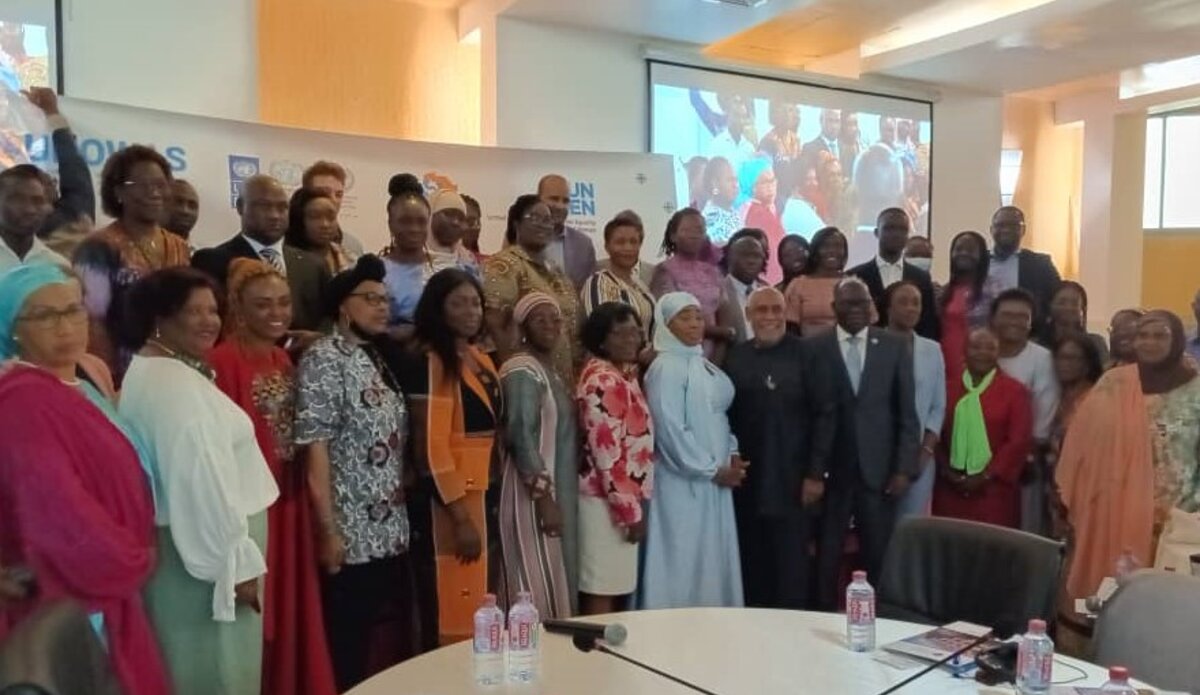Capacity Building Workshop on Gender-Sensitive Conflict, Political Analysis and Regional Priorities on Women, Peace, and Security

The United Nations Office for West Africa and the Sahel (UNOWAS), in partnership with the Joint DPPA-UNDP-DCO Programme and the Working Group on Women, Youth, Peace and Security in West Africa and the Sahel organized a three-day capacity building workshop on Gender-Sensitive Conflict and Political Analysis.
The workshop provided national stakeholders with training in gender-sensitive conflict and political analysis to enable them to effectively contribute to gender-responsive reporting in West Africa and the Sahel. It sought to increase knowledge awareness and skills, identify key gendered aspects of conflict, peace and security and share experiences from different national contexts.
The opening ceremony of the workshop was chaired by Mrs. Lariba Zuweira Abudi, Honorable Minister of Gender, Children and Social Protection of the Republic of Ghana, in presence of Mr. Charles Paul Iheanacho Abani, UN Resident Coordinator Ghana and Major-General Francis Adu-Amanfoh, Special Advisor to the President of Ghana on the Accra Initiative. In her remarks, Minister Abudi pointed out the lack of participation of women in peacebuilding processes mentioning that “women around the world continue to be excluded from peace and political efforts despite the fact that women’s involvement in mediation and peacebuilding leads to elevated and more sustainable peace outcomes”. General Adu-Amanfoh added that this workshop was particularly relevant and timely given that “violent extremism and terrorism is becoming a greater threat for the entire region as it drifts southward from the Sahel”. Mr. Abani echoed these sentiments and stated that, “this workshop must translate into actions which will put gender and youth at the center of Peace and Development Advisor (PDA) efforts in the region”.
Throughout the workshop, which was facilitated by Gender Associations Director Nicola Popovic, participants actively engaged exploring gender-sensitive conflict analysis and tools and frameworks. The proceedings utilized a varied array of techniques, including presentations on gender and conflict analysis tools and frameworks, interactive group work sessions, open floor debates and case study analyses. During these sessions, participants were actively engaged with the content of the workshop and offered national and personal experiences and context to discussions.
Recurring themes which arose during the three-day workshop included analysis of power structures and social markers which must be considered during gender sensitive conflict analysis, the need to pay specific attention to vulnerabilities during analysis, analysis of which actors have access to or control specific resources and the enduring need for gender sensitive analysis to ensure programs are more sustainable and effective. Throughout the workshop participants offered innovative and novel ideas on factors and markers which must be considered during analysis in national contexts and in the regional context of West Africa and the Sahel.
The enduring message of the workshop was the recognition that gender sensitive conflict analysis is vital to ensuring that analysis in conclusive and effective and that it should be integrated as a core piece of analysis efforts, rather than as a supplementary one. The session was closed by Major-General Francis Adu-Amanfoh, who further outlined the content of the Accra Initiative and stressed that collaboration between the initiative and the women’s and women, peace, and security, as well as youth, peace and security agendas are key to its sustained success.
UNOWAS, the Joint Program Working Group and the Working Group on Women, Youth Peace and Security in West Africa and the Sahel reaffirmed their commitment to the implementation of the women, peace, and security agenda and to the effective inclusion of women at all levels of political and peacebuilding efforts. As a result of this workshop, members of the Working Group and UN staff participants are now well equipped to effectively integrate gender into political and conflict analysis for engendering their reports, as well as programs and projects and forward the implementation of the United Nations Security Council Resolutions 1325 (2000), 2250 (2015) and subsequent ones across West Africa and the Sahel.
52 participants drawn from UN agencies, Civil Society Organizations, ministries of gender and women’s affairs and regional and Ghanaian representatives of the Working Groups on Women, Youth, Peace, and Security, received certificates for their successful completion of this workshop.
 UN
UN


